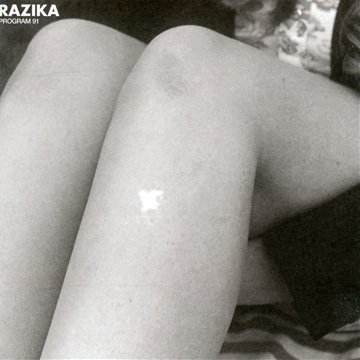
Razika
Program 91
Release Date: Aug 23, 2011
Genre(s): Pop/Rock, Alternative/Indie Rock, Alternative Pop/Rock
Record label: Smalltown Supersound
Music Critic Score
How the Music Critic Score works
Buy Program 91 from Amazon
Album Review: Program 91 by Razika
Very Good, Based on 7 Critics
Based on rating 4/5
This Scandinavian teen female four-piece make dreamy alt-pop. So, everyone, hold tight, maybe even look away for a line. Or at least close your ears. I might as well mention the inevitable right now and get it out of the way – [a]THOSE DANCING DAYS[/a]. Phew. That’s better.Except, luckily for ….
Based on rating 7.3/10
The first song on Norwegian indie-pop outfit Razika's debut, Program 91, is titled "Youth". It's an exercise in writing what you know. The band is made up of 19-year-old girls who have known each other since they were six and have been making music together since they were 14. Razika recorded Program 91 over the course of one year on weekends, to work around their school schedule.
Based on rating B
Razika seems like a mad indie rock scientist’s too-good-to-be-true creation: a pack of four teenage, Norwegian females turning out jangly indie pop that’ll please every trend jumper (not to mention creepy male groupie) around. The bright, cheery sounds of Best Coast and the surf movement, the punchy rhythms and sweet harmonies of Vivian Girls, and the spot-on ’60s pop sounds of Tennis somehow combine, with all of their rough edges smoothed out to a safe, childproof roundness. On their new LP Program 91, Razika manages to find the best in the word “inoffensive,” producing an album that is the definition of an easy listen, while also managing not to leave listeners feeling as if their time has been wasted in any way.
Based on rating 3.5/5
With a clean sound that swings toward the radio side of shiny and a bio that seems stage-managed into a harmless kind of indie press perfection, Razika don’t scream SERIOUS. So they whisper it instead. “Four teenage Bergensers (who happen to be girls) defang The Specials” is the short version; the long version freebases the unstable dub structures of their musical grandparents into a polished, rocksteady fizz that frames a steady stream of three-minute pop songs.
Based on rating 7/10
The zeitgeist is a fanciful bastard at the best of times, yet the Noughties’ wildly derided mainstream indie movement was, to these ears, simply a decent broth spoiled by too many cocks. Even the Kate Jackson-fronted Long Blondes, a pimply, Meyer-referencing beacon of intelligence and feminine glamour, were technically in thrall to predominant songwriter, the entire male Dorian Cox. Perhaps fearing effeminacy, the negligible components of that whole movement (I am aware it ’moved’ nowhere, pedants) churned out pifflism after recycled pifflism, refusing to admit they were effectively scrawling cartoon penises on a three decade old canvas covered with increasingly blurred drawings of cartoon penises.
Based on rating 7/10
Razika could be described as that oddly shaped, but instantly noticeable gift you always get at a party. Wrapped inside a crumpled gift-wrap, its content demands immediate attention, but also incites a series of mind-bending questions. At first listen, the tangy pop powder the Norwegian foursome spreads unravels like a pleasant surprise, instantly hitting that sweet spot with an inviting impulse.
Opinion: Very Good
Blood Orange Music pours out of Dev Hynes, Texas born, England raised, and now living in New York. He was a member of the British band Test Icicles until 2007, until he went solo and called himself Lightspeed Champion for a few broadly melodic indie-rock records; now he’s Blood Orange. The impressive and elegant first Blood Orange record, “Coastal Grooves” (Domino), sounds stylistically all out of order.
'Program 91'
is available now

